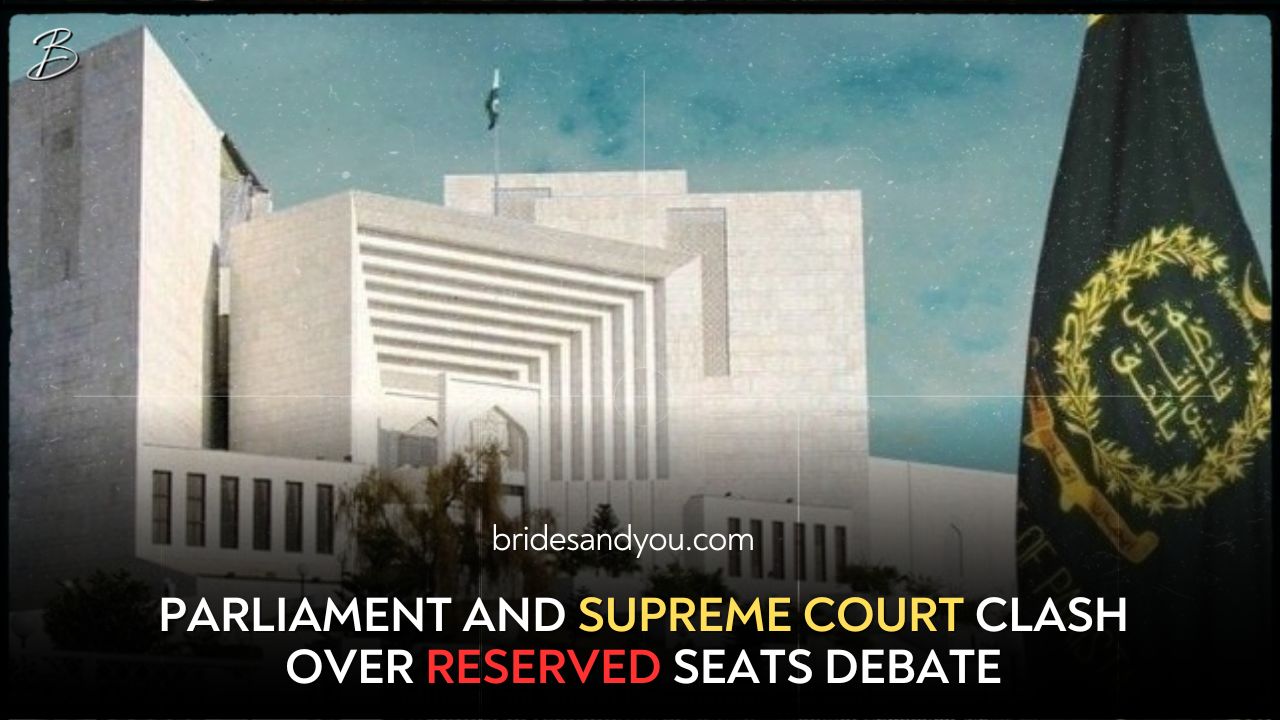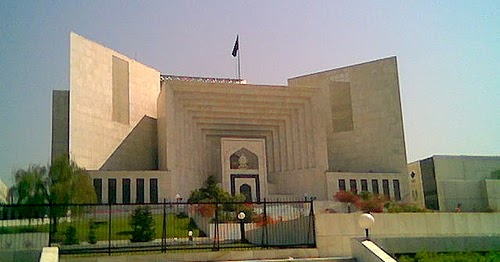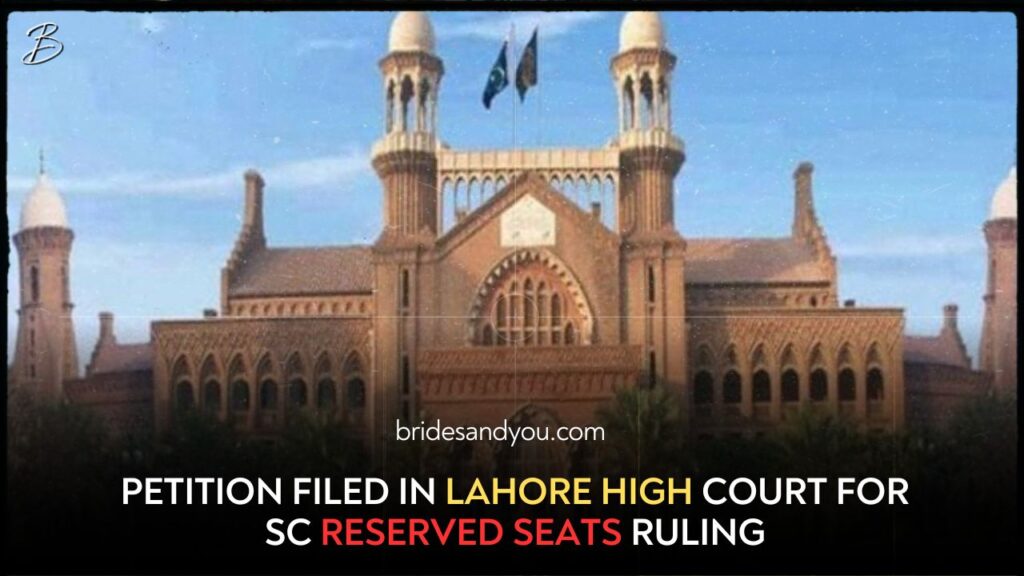Now Reading: PARLIAMENT AND SUPREME COURT CLASH OVER RESERVED SEATS DEBATE
-
01
PARLIAMENT AND SUPREME COURT CLASH OVER RESERVED SEATS DEBATE
PARLIAMENT AND SUPREME COURT CLASH OVER RESERVED SEATS DEBATE

ISLAMABAD:
The ongoing standoff between Parliament and the Supreme Court escalated on Thursday as National Assembly Speaker Sardar Ayaz Sadiq sent a strong letter to the Election Commission of Pakistan (ECP), urging it to respect parliamentary sovereignty regarding the allocation of reserved seats to the Pakistan Tehreek-e-Insaf (PTI).
This letter follows a Supreme Court ruling allowing independent candidates to join political parties after winning elections, along with a directive from eight judges instructing the ECP to implement this judgment promptly.
On July 12, the Supreme Court declared PTI a parliamentary party, entitling it to reserved seats that had previously been distributed among other parties in the national and provincial assemblies. In response, Parliament passed the Elections (Second Amendment) Act, 2024, which restricts party-switching by independent candidates, effectively overriding the Supreme Court’s decision. The bill, introduced by PML-N MNA Bilal Azhar Kayani, prohibits independent candidates who join a party after the election from changing their political affiliation.

In his letter, Speaker Sadiq reinforced Parliament’s stance, asserting that the new law takes precedence over the Supreme Court’s judgment and should guide the ECP’s allocation of the contested seats. He emphasized that the court’s ruling, issued before the amendment, is now outdated due to the legislative changes.
Parliamentary Sovereignty vs Judicial Authority
Sadiq’s letter highlights the importance of upholding parliamentary sovereignty, warning that undermining it could erode public trust in democratic institutions. He stated, “Upholding the principles of parliamentary sovereignty is essential to maintaining the integrity of our system. Any actions perceived as undermining this can erode public trust.”
The speaker referred to the new Elections (Second Amendment) Act, 2024, which makes party-switching by independent candidates irrevocable. He argued that the ECP cannot allocate seats without applying the amended law, making the earlier Supreme Court judgment unenforceable.
The letter also cited Section 66 of the amended act, which requires candidates to declare their party affiliation during the election process. Section 104-A further states that any post-election affiliation by independent candidates is “irrevocable and cannot be withdrawn.”
Sadiq underscored that these amendments have retrospective effect, starting from the 2017 Election Act, rendering the Supreme Court’s July ruling invalid. He urged the ECP to prioritize the amended law over the court’s previous decision.
Political Implications of Reserved Seats
The allocation of reserved seats has significant political implications. The suspended seats currently prevent the ruling PML-N-led coalition from securing a two-thirds majority in the National Assembly, hindering their ability to pass key constitutional amendments. Should the Supreme Court’s ruling be enforced, PTI would gain control of these seats, potentially becoming the largest party in the National Assembly.
This dispute follows the failure of the PML-N-led alliance to pass the 26th Constitutional Amendment Bill, which sought to establish a Federal Constitutional Court. The bill was blocked by JUI-F chief Maulana Fazlur Rehman, whose party withheld crucial votes, leading to its collapse. Despite ongoing negotiations, the coalition has yet to resolve its internal political rifts.
By emphasizing parliamentary sovereignty in his letter, Speaker Sadiq indirectly addressed these political challenges, signaling that the reserved seats issue could further destabilize the fragile balance of power within the government.
Legal and Constitutional Conflict
The speaker’s letter highlights a broader constitutional conflict between the Parliament and the judiciary, with the ECP caught in the middle. Sadiq insisted that the amended election law, as the most recent legislation, overrides the Supreme Court’s earlier judgment. He argued that the ECP is legally obligated to prioritize laws passed by Parliament, reaffirming the principles of democracy and parliamentary supremacy.
This direct challenge to the Supreme Court sets the stage for a possible legal battle between the legislative and judicial branches. By insisting on retrospective application of the new law, the speaker has placed the ECP in a difficult position, forcing it to navigate between complying with both judicial orders and parliamentary legislation.
ECP’s Dilemma
As the ECP reviews the speaker’s letter, the political situation remains tense. The outcome of this standoff will not only determine the allocation of reserved seats but also shape the balance of power in the National Assembly.
If the ECP sides with Parliament and applies the amended law, the ruling coalition could regain its advantage. However, if the Supreme Court’s ruling is upheld, PTI would secure the seats, significantly boosting its position in the Assembly.
With both the Parliament and the judiciary asserting their authority, the reserved seats issue remains unresolved, adding to the nation’s political and economic uncertainty.











